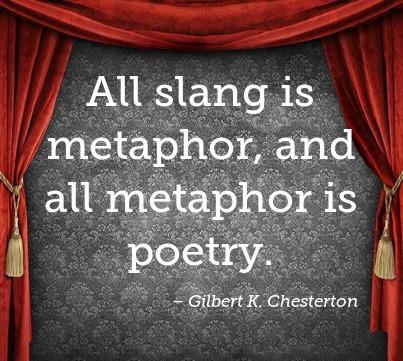Many of my clients often said to me with frustration,
“What I present is too complex or too technical. Most of the times, I saw my audience drifting away. How can I explain it in a simple way so I can not only help the audience understand but also keep their attention?”
There is one very powerful tool that can help you solve your predicament.
When you present ideas that are complex or technical, imagine you were presenting to a five-year-old kid. You wound’t use jargons or complicated sentences that a five-year-old kid couldn’t understand. Instead, you do your best to use words and sentences that they can understand. You relate to where they are.
Using metaphors is a very effective way to help you get your complex ideas relatable, simple and understandable.
What is a metaphor?
The definition of metaphor is, a figure of speech in which a word or phrase is applied to an object or action to which it is not literally applicable.
When you present an idea, a metaphor would go beyond a word or phrase. It could be used to simulate a problem, a process, a solution, and so on.
We use metaphors in our lives all the time. It’s just that you may have not paid much attention. For example, when we say, “I’m in a dump”, it’s a metaphor, simulating the terrible situation you are in.
Another example, “He is a night owl.” Of course he is not and he can not be. It’s a metaphor for his habit of sleeping late. Similarly, “Early bird catches the worm.”

When you present a complex idea, for example, how the trillions of cells work in our body, think about the following questions:
- How can I relate to what the audience already knows?
- What does the audience already know? It could be common-sense knowledge. For this example, you have to make the audience realize how large in quantity is trillions of cells? Maybe it’s like the stars we see in the sky? Maybe … etc.?
- What trillions of cells at work is similar to? It also needs to be something that the audience can relate to. Maybe it’s like how a family tree works, how a children’s life is, how … etc.
Ask yourself a series of questions to find the best metaphors that describe your idea. Observe things around you and listen to what others often talk about. Build a library of metaphors of your own. It will take a bit of observation and attention if you want to present complex ideas with simplicity.



